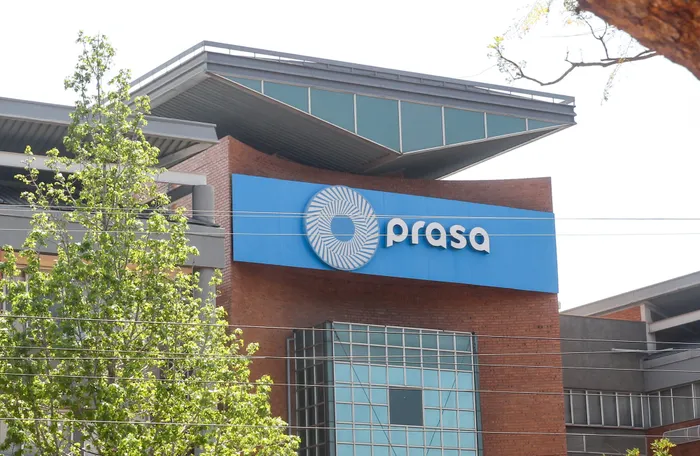PRASA board 'throwing' top executives under the bus, claims whistleblower
UNDER SCRUTINY

According to the whistleblower, the board was fully aware of a planned raid by law enforcement on PRASA’s offices but deliberately kept that information from the suspended executives.
Image: Jacques Naude/Independent Newspapers
Should the current board of the Passenger Rail Agency of South Africa (PRASA) be dissolved? How much did they know about corruption, questionable suspensions, and looming law enforcement actions? Did they act in the public’s interest or their own?
These are the questions now surfacing following explosive allegations from a whistleblower who claims the current board is engaged in a calculated cover-up, aiming to protect itself while sacrificing senior executives.
In a letter sent on Sunday to Transport Minister Barbara Creecy and several media houses, the whistleblower accused the PRASA board of orchestrating a strategy to “throw the CEO, CFO and Head of Legal under the bus” — even though board members themselves allegedly endorsed or approved many of the decisions now under scrutiny.
“They are trying to exonerate themselves by making the executives the fall guys for decisions the board itself was part of,” the whistleblower wrote.
The claims go further. According to the whistleblower, the board was fully aware of a planned raid by law enforcement on PRASA’s offices but deliberately kept that information from the suspended executives.
Even more disturbing, the whistleblower alleges that raids on the executives’ homes are now imminent — and that some board members are actively involved in these efforts.
“This is a calculated move to protect the board’s image while sacrificing individuals they worked closely with,” the letter stated.
The allegations come as pressure mounts on former PRASA leadership implicated in the state capture era, and as civil society organisations demand accountability from both past and current officials.
One such organisation, commuter activist group #UniteBehind, has recently been admitted as a full respondent in a court battle launched by former PRASA board members.
Those individuals — including former CEO Lucky Montana, former chairperson Sfiso Buthelezi, and other high-ranking officials — are seeking to overturn the findings of the Zondo Commission of Inquiry into State Capture, which directly implicated them in large-scale corruption and governance failures at PRASA.
In 2022, these former board members applied to the Johannesburg High Court to have parts of the Zondo report declared unlawful and irrational, arguing they had not been given a fair opportunity to respond to the allegations.
However, Acting Judge Naki Stylianou ruled last week that #UniteBehind had demonstrated a “direct and substantial interest” in the case and would be allowed to join as a respondent.
This status gives the organisation full rights to challenge evidence and submit new material in court.
In his affidavit, #UniteBehind founder and activist Zackie Achmat said the organisation would present fresh evidence reinforcing the Zondo Commission’s conclusions and exposing further misconduct. “We want to protect the integrity of the state capture report and ensure those responsible are held accountable,” Achmat said.
Achmat also stated that the group could correct falsehoods presented by the former board members and pointed to #UniteBehind’s long history of anti-corruption efforts at PRASA, including assisting the Zondo Commission itself.
The whistleblower’s new claims raise urgent concerns about whether the current board is continuing the very culture of impunity the Zondo Commission was meant to expose.
The parallels are striking: a board accused of enabling questionable decisions, failing to act transparently, and taking steps that seem more about self-preservation than accountability. If past board members are now being challenged in court and held responsible for their role in the state capture era, many are asking: why should today’s board be treated differently?
Sidebar:
Whistle-Blower Victimisation & Dismissals
The board, chaired by Leonard Ramatlakane (appointed in 2020) was accused of unfairly dismissing whistle-blower executives—Martha Ngoye, Tiro Holele, and others—shortly after they testified at the Zondo Commission. Their dismissal was overturned by the Labour Court, which ruled the board’s grounds “grossly misconceived” and punitive. The board was criticised for treating whistleblowers as internal enemies.
State Capture Allegations Against Former Board
A previous board, under chair Sfiso Buthelezi and CEO Lucky Montana, was implicated in State Capture by the Zondo Commission. They were accused of orchestrating irregular contracts and procurement processes that facilitated financial looting. These former board members are now seeking to overturn parts of the Zondo report.
Mismanagement of Forensic Investigations & Wasteful Spending
Meeting oversight failures were uncovered, including a R150 million Werksmans forensic investigation arranged without proper tender, while Treasury’s investigation cost just R20 million. Issues around transparency, governance, and unaccounted expenditures were cited.